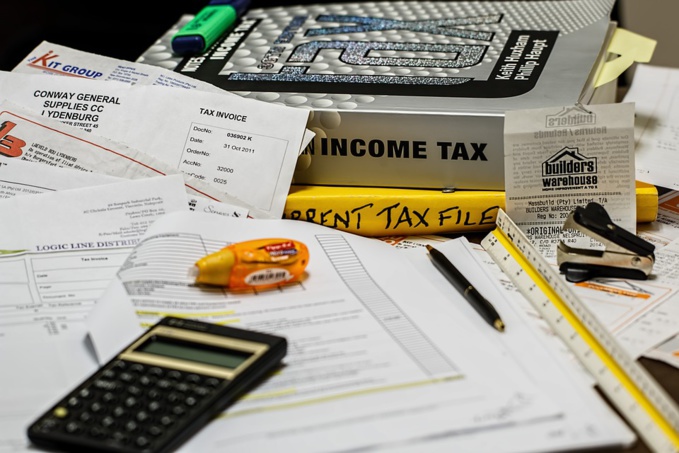The Dutch Fiscal Information and Investigation Service (FIOD) reported that coordinated sweeps started on Thursday in the Netherlands, Britain, Germany, France and Australia after receiving information on 55,000 suspicious accounts in a Swiss bank. At the same time, name of the bank was not disclosed.
The British tax authorities also said that on Friday they initiated a criminal investigation on suspicion of tax evasion and money laundering by a "global financial institution". Initially, they intend to focus on senior employees together with an undetermined number of clients. The British also did not disclose name of the financial institution.
The Dutch are investigating a dozen people suspected of tax fraud and money laundering, according to a statement by the Dutch prosecutor's office. The suspects deposited money in a Swiss bank and did not report this to the authorities.
The statement does not identify the bank, but Zurich Credit Suisse told that they were contacted by authorities in Amsterdam, London and Paris. The bank noted that they are ready to support the investigation.
However, the Swiss Chancellery of the Attorney General stated that they were "embarrassed" by how the Dutch authorities settled this matter and would require an explanation. The Dutch FIOD spokeswoman Wietske Vissers said that the investigation will "continue for several days and weeks" in different countries.
Australian Minister of Revenue and Financial Services Kelly O'Dwyer said that the country's financial crime investigator is investigating 340 Australians linked to accounts in a Swiss bank. She added that they were identified only by number.
"The fact that these accounts did not have a name means that by their very nature they were most likely created to hide identity of the owner," O'Dwyer said.
FIOD stated that employees had already confiscated business documents, as well as contents of bank accounts, real estate, jewelry, luxury cars, expensive paintings and gold bars from houses in The Hague, Hoofddorp, Zwolle and the municipality of Venlo in the Netherlands.
25 billion euros. This is how much money the 20 largest banks of seven European countries hid from the national tax services in other states and territories that allow to avoid tax deductions. This is stated in a report prepared by experts of the international organization for combating poverty and social inequality Oxfam International. The list includes BNP Paribas, HSBC, Credit Agricole, RBS, Deutsche Bank and other major European banks that continue to use offshore zones to extract maximum profits.
Banks in Germany, France, Britain, Italy, the Netherlands, Spain and Sweden are hiding a significant part of the income from taxes of their states in countries with taxation preferential to foreign companies. From the legal point of view, their actions cannot be considered criminal as they are formally acting within the laws. However, from the point of view of the social and political situation, the bankers are playing with fire. Last year, leakage of information from Panama's Mossack Fonseca company, which helped its numerous clients evade taxes, shed light on the dark side of the global financial system. It turned out that many well-known politicians and even state leaders successfully hid their money in the shadow.
The creation of offshore is illegal per se, and the question is not about it. Namely, any movements of funds on accounts of so-called politically significant persons, that is, well-known politicians and other VIP persons, should be transparent. They by definition should not have funds that would not appear in their official declaration of income and property. However, who hid in the offshore these 25 billion discovered by OXFAM? It is unlikely that this money belongs to ordinary European workers.
source: reuters.com
The British tax authorities also said that on Friday they initiated a criminal investigation on suspicion of tax evasion and money laundering by a "global financial institution". Initially, they intend to focus on senior employees together with an undetermined number of clients. The British also did not disclose name of the financial institution.
The Dutch are investigating a dozen people suspected of tax fraud and money laundering, according to a statement by the Dutch prosecutor's office. The suspects deposited money in a Swiss bank and did not report this to the authorities.
The statement does not identify the bank, but Zurich Credit Suisse told that they were contacted by authorities in Amsterdam, London and Paris. The bank noted that they are ready to support the investigation.
However, the Swiss Chancellery of the Attorney General stated that they were "embarrassed" by how the Dutch authorities settled this matter and would require an explanation. The Dutch FIOD spokeswoman Wietske Vissers said that the investigation will "continue for several days and weeks" in different countries.
Australian Minister of Revenue and Financial Services Kelly O'Dwyer said that the country's financial crime investigator is investigating 340 Australians linked to accounts in a Swiss bank. She added that they were identified only by number.
"The fact that these accounts did not have a name means that by their very nature they were most likely created to hide identity of the owner," O'Dwyer said.
FIOD stated that employees had already confiscated business documents, as well as contents of bank accounts, real estate, jewelry, luxury cars, expensive paintings and gold bars from houses in The Hague, Hoofddorp, Zwolle and the municipality of Venlo in the Netherlands.
25 billion euros. This is how much money the 20 largest banks of seven European countries hid from the national tax services in other states and territories that allow to avoid tax deductions. This is stated in a report prepared by experts of the international organization for combating poverty and social inequality Oxfam International. The list includes BNP Paribas, HSBC, Credit Agricole, RBS, Deutsche Bank and other major European banks that continue to use offshore zones to extract maximum profits.
Banks in Germany, France, Britain, Italy, the Netherlands, Spain and Sweden are hiding a significant part of the income from taxes of their states in countries with taxation preferential to foreign companies. From the legal point of view, their actions cannot be considered criminal as they are formally acting within the laws. However, from the point of view of the social and political situation, the bankers are playing with fire. Last year, leakage of information from Panama's Mossack Fonseca company, which helped its numerous clients evade taxes, shed light on the dark side of the global financial system. It turned out that many well-known politicians and even state leaders successfully hid their money in the shadow.
The creation of offshore is illegal per se, and the question is not about it. Namely, any movements of funds on accounts of so-called politically significant persons, that is, well-known politicians and other VIP persons, should be transparent. They by definition should not have funds that would not appear in their official declaration of income and property. However, who hid in the offshore these 25 billion discovered by OXFAM? It is unlikely that this money belongs to ordinary European workers.
source: reuters.com



















